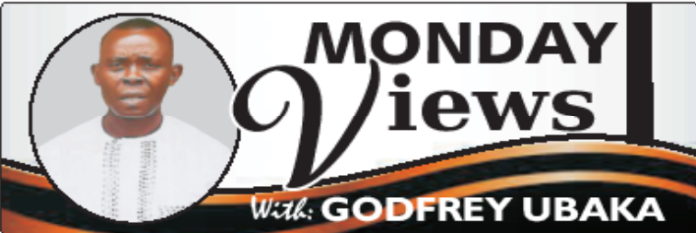AS the fun and frenzy of the Christmas and New Year celebration gradually begin to subside, the sobriety and reflective meditation of January brings to bear on the burdens of 2024 and the feverish expectations of the new year. Nigerians crossed the threshold of a most traumatic year, 2024 into 2025 with high pitched expectation that things can be turned around in the areas of containing the menacing insecurity, ravaging inflation suffocating families and businesses. In the maze and miasma of an excruciating economic reform process emerged some glimmer of hope in the maze of thick darkness with the restoration of PortHacourt and Warri refineries. Their turnaround and the coming on stream of Dangote refinery are however yet to reflect in the exorbitant cost of premium motor spirit across the country. The economic reforms of the Federal Government have come with them such social economic burdens that make 2024 clearly one of the most challenging years in recent memory.
The year 2024 practically tested the resilience of citizens in unprecedented ways with many unable to stand the twin shockwaves of fuel subsidy removal and naira flotation, policies that came at the early days of the Tinubu administration in 2023. With fuel prices surging beyond N1,000 and the dollar exchange rate breaching N1,700, for an import dependent economy, the resulting 34 percent inflation rate became not just a statistic, but a daily reality that forced millions of families to make painful choices between basic necessities. Life became a drudgery.The expectations for 2025 are as urgent as they are fundamental. First among these is that Nigerians want to see a stabilisation of fuel prices through increased domestic refining capacity. Many are of the opinion that the Federal Government should dwell less on propaganda with respect to the operationalisation of the Port Harcourt and Warri refineries. The operations of both refineries should be sustained in a higher momentum and the impact should be felt in driving down the current exorbitant pump price regime for petroleum products. The expectation is also rife that Kaduna refinery should be back on production stream. The competition in the deregulated fuel market is expected to yield genuine benefits for consumers. This should be practical and proven and not just theoretical propagandish advantages.
The Federal Government says it has put a new company in place to normalize the price of food and pharmaceuticals.
The crisis in the pharmaceutical sector truly called for immediate intervention. The Coordinating Minister of Health and Social Welfare Muhammed Ali Pate’s acknowledgment of skyrocketing drug prices must be followed by concrete measures to ensure affordable access to essential medications. To ameliorate on the suffering of year 2024, concrete and convincing actions need be taken along the line of inflation reduction and exchange rate stability. Nigerians are also eager to have the power sector reforms yield stable power supply rather than a national grid that is known for frequent collapse. Increased power generation is needed for the economy to get back to the path of productivity and anticipated viability.
Nigerians are also expectant that the current economic reforms should result in improvements in living standards. For long, Nigerians have been fed on diets of hope. Many have in the process died in the frustration of endless expectations.
The year 2025 must be the year when hope transforms from rhetoric and political sloganeering into reality. Nigerians also expect that political promises should translate into democratic dividends and social economic deliverables. For rather too long now, the average citizens have been asked to further tighten their belts in endless sacrifices, 2025 is expected to be that year when sacrifices should begin to yield tangible returns for the overall good of the country at large. The Government must take practical steps to avoid repeat of citizens uprising in the form of the hunger protests that made 2024 a year in the dark side of history.
Mr President should urgently cut down on the cost ofgovernance, ensure transparency in resource management and strengthen social safety nets for the most vulnerable and begin to implement policies that can lower the cost of living.
Postscript
Passive Parenting
PARENTING is a key responsibility for societal stability. Before now, communities recognized that parental responsibility was critical for the shaping of the future of society that the upbringing of any child is considered the primary and collective responsibility of every parent or proven adult.The result was a society of deeply defined and cherished moral values. Today, majority of parents have abdicated their responsibilities to schools, faith based organizations and worse still the social media. The influence of the social media on the mood and psych of the average adolescent is pervasively overwhelming. The result is the high degree decadence and social maladjustment in our society of today. Passive parenting is a parenting style where parents who are expected to be responsive and nurturing have turned out to have low expectations and little structure or control. It’s also known as permissive, lax, or indulgent parenting. It has become common for parents with weak economic earnings to lose their voice and authority over their children. The family unit has evidently caved in, giving way to the preponderance of miscreants and social misfits fuelling crime and criminality. Absentee parenting, despondent parenting, lax or permissive parenting end up creating more problems for society. Parents owe it a duty to be more active in their onerous responsibility of raising the leaders of tomorrow through the right actions and positive attitude of today. HAPPY NEW YEAR TO ALL OUR READERS


